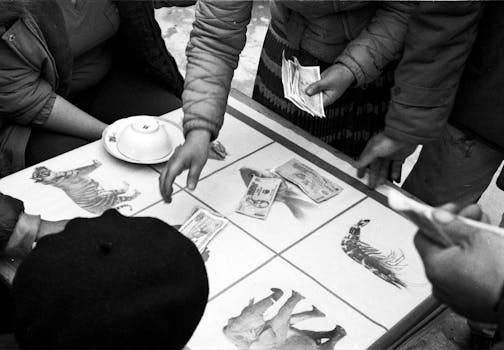The Role of Family and Friends in Helping a Problem Gambler
Gambling addiction can have devastating consequences, not just for the gambler but also for their loved ones. Family and friends play a crucial role in the support network for someone struggling with problem gambling. In this article, we will explore how family and friends can effectively assist a problem gambler, discussing various approaches, their benefits, and potential pitfalls.
Understanding Problem Gambling
Problem gambling, also known as gambling addiction, is characterized by an uncontrollable urge to gamble despite the negative impact it can have on one's life. Recognizing the signs of problem gambling is the first step in helping someone. These signs might include increasing financial and social problems, a preoccupation with gambling, and chasing losses.
Providing Emotional Support
Approach: One of the primary roles of family and friends is to provide emotional support. This can involve being there to listen, offering encouragement, and expressing concerns without judgment.
Advantages: Emotional support helps reduce the feeling of isolation that many problem gamblers experience. It can foster a sense of belonging and self-worth, which are crucial for recovery.
Disadvantages: There is a risk of enabling the gambler's behavior if not done correctly. For example, offering money to cover debts might encourage more gambling.
Practical Example: In a support group setting, families can learn the difference between supporting and enabling. Groups like Gam-Anon provide a platform where family members can share experiences and find effective ways to support their loved ones without enabling their gambling habits.
Setting Boundaries
Approach: Setting financial and emotional boundaries is critical. This might mean taking control of the family finances, limiting access to cash, or deciding not to cover for the gambler’s responsibilities.
Advantages: Boundaries can help prevent enabling and can also protect the family’s financial and emotional well-being. It creates a clear framework within which the gambler can operate.
Disadvantages: This approach can sometimes lead to conflict or resentment if not handled carefully. It’s important that the gambler understands these boundaries are set out of love and for mutual protection.
Practical Example: A family might decide to have one person manage all financial transactions and give the gambler a limited allowance to ensure that household expenses are not jeopardized.
Encouraging Professional Help
Approach: Encouraging the gambler to seek professional help from counselors specializing in gambling addiction can be effective.
Advantages: Professional therapists are trained to deal with the complexities of addiction and can provide strategies and treatments tailored to the individual’s needs.
Disadvantages: Convincing a problem gambler to seek help can be challenging. There may be denial about the severity of the problem or fear of stigma.
Practical Example: Family members can offer to accompany the gambler to therapy sessions to show support and solidarity.
Intervention
Approach: In some cases, an intervention may be necessary. This involves gathering a group of close family and friends to confront the gambler about their behavior in a structured way.
Advantages: An intervention can be a wake-up call for the gambler to take serious steps toward recovery.
Disadvantages: If not done correctly, an intervention can backfire, leading to increased resistance and a breakdown in family relationships.
Practical Example: Families can seek the help of a professional interventionist who can guide the process and increase the chances of a positive outcome.
Conclusion
Family and friends are vital in the recovery process for problem gamblers. By offering emotional support, setting boundaries, encouraging professional help, and possibly staging an intervention, they can provide the necessary help to steer the gambler towards recovery. Each approach has its advantages and challenges, but the combined effort can lead to a successful outcome. If you know someone struggling with gambling addiction, consider these strategies and consult professional resources to guide your actions. Remember, the journey to recovery is a marathon, not a sprint, and having a supportive network can make all the difference.
For more information on problem gambling and recovery strategies, visit websites like the National Council on Problem Gambling or Gamblers Anonymous. These resources can provide guidance and support for both gamblers and their families.

.png)





